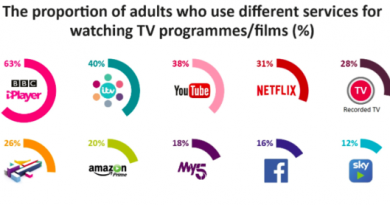The return of cigarette advertising – sort of
Posted by Dr John Jewell

On September 14th the International Business Times reported that the world’s biggest tobacco companies were to spend millions of dollars advertising e cigarettes on British television. The Daily Mail the same day told us that £11.5million has already been spent advertising ‘smoking deterrent products’ in the UK this year – including on e-cigarettes – beating last year’s £13.6million record.
Added to this analysts at the US Canaccord Genuity investment bank said they expected e-cigarettes would be the ‘most significant development in the history of the organised tobacco industry’. The bank estimates that the global market will rise from £1.3 billion to £1.9 billion this year. The existing tobacco business is worth £450 billion.
So what is an e cigarette? In simple terms it is a battery operated nicotine inhaler shaped like a cigarette. It produces an odourless vapour instead of ash and smoke. Crucially, it contains significantly less nicotine than a normal cigarette which means that it can be used as an aid for quitting the habit. A recent study study published in The Lancet concluded that e-cigarettes were statistically comparable to nicotine patches in helping smokers quit over a six-month period.
It’s logical to think then that the tobacco industry, as we know it anyway, is in terminal decline in western countries. The emergence of e cigarettes represents a chance to exploit a new revenue stream. According to the Economist it’s entirely possible that within a decade the sales of e cigarettes will overtake those of conventional tobacco.
Last year Lorillard (the maker of American brands such as Newport and Kent) bought Blu, an e-cigarette maker, for $135m. NJOY, another e manufacturer, is rumoured to be facing a takeover from Altria (the maker of Marlboro). British American Tobacco the maker of Lucky Strike and Benson & Hedges launched its own e cigarette in the UK in July and Philip Morris International, the world’s biggest and most infamous tobacco company, is due to launch e-cigarette in the very near future.
The direct and indirect advertising of tobacco products in the press has been banned in this country for a decade, whilst the last television commercial was shown almost 50 years ago in 1965. In 2012 legislation came in to force which required all supermarkets to hide cigarettes and relating products from public view. By 2015, all other business and smaller shops will be obliged to comply with the ruling. The intention has been to eradicate images of tobacco from daily experience and to deter children from taking up the habit. Opinions tend to differ on the overall success of the bans but one thing is indisputable – fewer people now smoke in comparison to 30 years ago. The General Lifestyle Survey indicates 45% of adults smoked in 1974 compared with 20% in 2011.
The marketing of e cigarettes is gathering pace, though. The manufacturer E- lites broadcast an advert on ITV and Sky in January which featured comedic actor, Mark Benton.
Benton plays a father who nips outside for a cigarette and inadvertently misses out on the first steps of his child. He returns to his sitting room and amazed relatives who have just seen a toddler walk gangnam style. The strapline is, ‘what are you missing out on?’ The obvious point is that the purchase of an e cigarette means you never have to miss suffer the indignity and embarrassment of going outside to smoke again. Plus, you will never more will you miss out on life changing events.
Companies want to appeal to the young, good looking and single, too. The Financial Mail on Sunday reported in May that Cara Kilbey of The Only Way Is Essex, TV presenter Lizzie Cundy, Brooke Kinsella of EastEnders and pop singer Lemar are among celebrities pictured with E-Lites on its Facebook page. At present actor Stephen Dorff and former playboy model Jenny McCarthy front campaigns for BluCig.
But that’s not all. In August Merthyr Town football club announced that its ground, Penydarren Park, was to be renamed the Cigg –e Stadium after their new sponsor for three years who have (not coincidentally) opened a shop in the town. At the same time, the internationally supported Glasgow Celtic announced an ‘official partnership’ with E- lites which effectively means that the vapour sticks can now be sold and consumed within Celtic park. Of course, such actions have not been welcomed by some – Stewart Maxwell, MSP for West of Scotland, said: “I am very disappointed an extremely big and successful football club such as Celtic would get involved with this type of sponsorship deal. The whole campaign to ban smoking in public places was about de-normalising smoking as an activity in public. This [deal] goes exactly in the opposite direction. It sends out entirely the wrong message to young people.’
Whether this is the case or not – and there is a persuasive argument to suggest that the use of relatively safe e cigarettes will lead to a significant decline in tobacco consumption – we are seeing a concerted effort by companies to promote their products. And at present there is no ruling to prevent their advertising or an age limit on who can buy the products. Interviewed in the Financial Mail on Sunday Umer Sheikh, co-founder of Gamucci e cigarette company, said: ‘There will be more creative advertising from e-cigarette companies because the product shares certain characteristics with cigarettes and you cannot be seen to promote smoking.
‘In the US, e-cigarette companies can advertise very freely, and show vapour being inhaled and blown out.
‘We think the ASA [Advertising Standards Authority] should look at the rules and understand that this is the 21st Century and this is not a tobacco product.’

